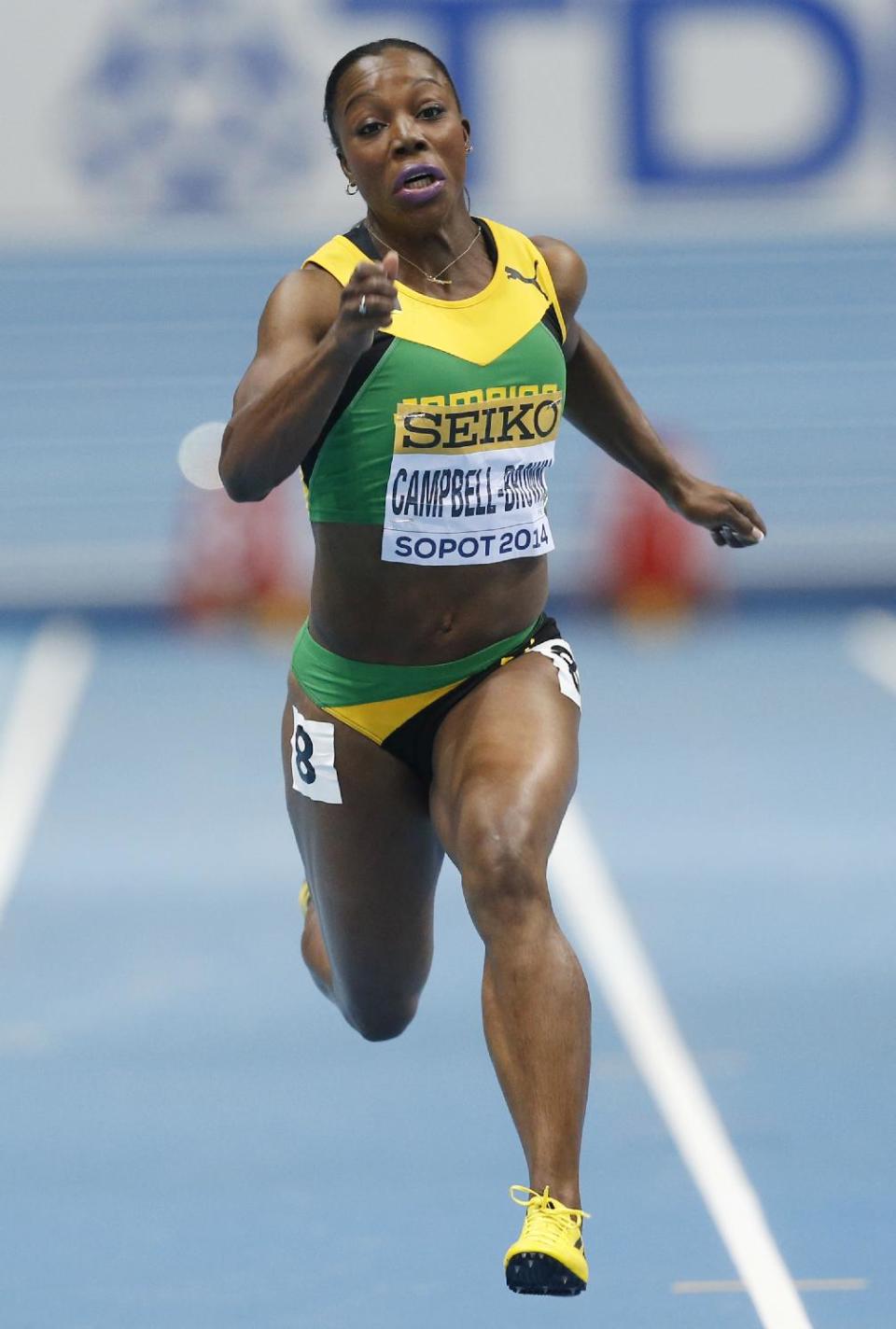CAS cites doping sample flaws in Jamaican case
LONDON (AP) — Jamaican sprinter Veronica Campbell-Brown was cleared of doping because of blatant flaws in the test collection procedures and possible "environmental contamination" of her urine sample, sport's highest appeals body said Tuesday.
The Court of Arbitration for Sport released its full report explaining the decision to uphold the three-time Olympic gold medalist's appeal against a two-year doping ban.
The runner was cleared by CAS in late February, but the reasons have not been released until now.
In a 58-page ruling, the three-man arbitration panel outlined "deplorable" mistakes by Jamaican athletics and anti-doping officials in the collection of the athlete's first partial sample. CAS said the errors could have led to the sample being contaminated by water or sweat containing a banned substance.
Campbell-Brown tested positive for the diuretic HCT after competing in a national meet in Kingston, Jamaica, on May 4, 2013. Both the "A'' and "B'' samples came back positive.
The athlete, who denied intentionally taking a banned substance, was initially suspended provisionally by the IAAF and unable to defend her 200-meter title at the world championships in Moscow. In September, a Jamaican disciplinary panel ruled that she had not committed a doping violation and gave her only a reprimand.
The International Association of Athletics Federations contested the finding and ordered the Jamaican federation to impose a two-year suspension in February. Campbell-Brown appealed to CAS and a hearing was held in London on Feb. 21.
The case centered on the handling of her sample after she failed to produce the required amount of urine in her first attempt.
CAS found that Campbell-Brown established a "credible" possibility that her positive test resulted from Jamaica's failure to comply with the international standards for partial sample testing.
The court said the Jamaican Athletics Administrative Association "has persistently failed to comply" with the global standards.
"That systematic and knowing failure ... is deplorable and gives rise to the most serious concerns about the overall integrity of the JAAA's anti-doping processes," the ruling said.
Among the mistakes listed in Campbell-Brown's case:
— the sample was not sealed in a special-purpose partial collection container.
— the partial sample was left in an unsealed container with a lid containing a small spout.
— the sample stayed in possession of the athlete, not the doping control team.
— when Campbell-Brown was ready to give another sample, she was told to use the same container, rather than a new one.
— the drug-testing officer failed to record any information about the partial sample in the doping control form.
CAS said Campbell-Brown placed the unsealed container on the floor while she went to get water and do exercises in an effort to produce more urine. She also washed her hands in a sink in a nearby bathroom. It was up to an hour before she produced enough further urine.
The CAS panel ruled out deliberate spiking of the sample but said "environmental contamination" was possible.
The court relied heavily on testimony from Peter Sever, a professor of clinical pharmacology and therapeutics and head of the department of clinical pharmacology at Imperial College in London.
He said the "most likely explanation" for Campbell-Brown's positive test was contamination of her sample through sweat or water containing HCT, a common medication for high blood pressure.
CAS said Campbell-Brown could have come into contact with HCT when she touched bottles stored in ice and washed her hands in the toilet. Contaminated sweat or water also could have entered the sample through the container's small spout, it said.
Sever noted that three out of 100 athletes tested in the Kingston stadium over a two-month period in 2013 came back positive for HCT. At least two were partial sample cases, he said, suggesting a common environmental cause.
Campbell-Brown has won seven Olympic medals in all, including gold in the 200 meters in 2004 and 2008 and the 4x100 relay in 2004. She also won the 100-meter world title in 2007 and 200 gold at the 2011 worlds.
She was one of eight Jamaican athletes who failed drug tests last year.
___
Follow Stephen Wilson on Twitter: http://twitter.com/stevewilsonap



